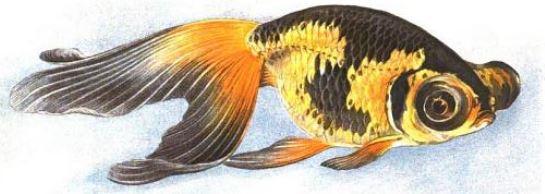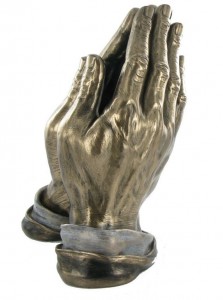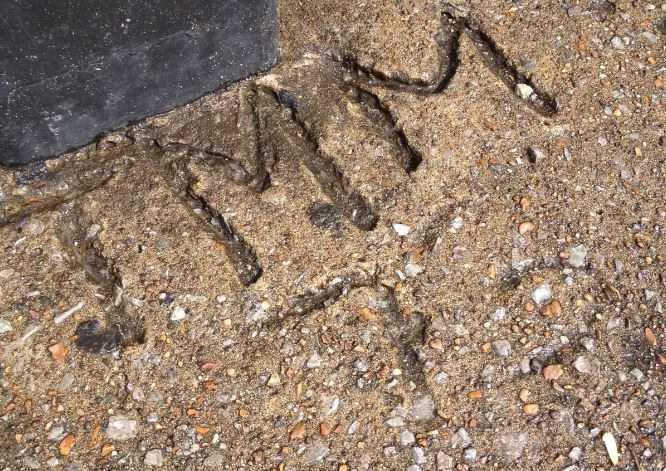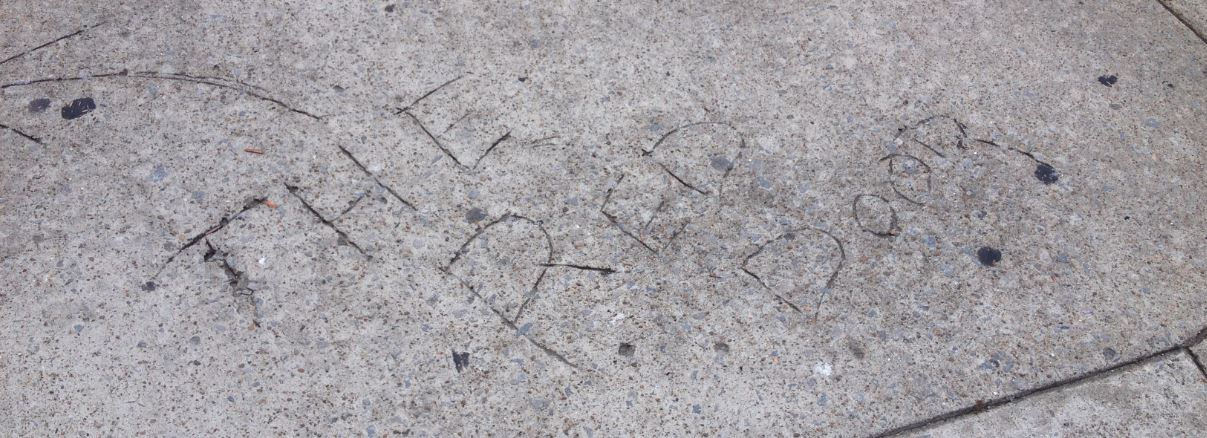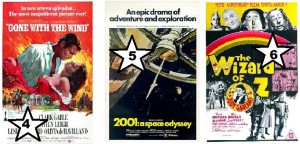Let’s Review!
As one who is both regularly a pedestrian and behind the wheel I’ve noticed a lot of confusion regarding the rules of the road. Here are some helpful tips, clarifications, addendums, codicils, hacks, inclusions, annexations, impositions, and aggregations.
 Pedestrians: when you see this sign it means you can safely cross the street.
Pedestrians: when you see this sign it means you can safely cross the street.
Drivers: when you see this sign it’s usually accompanied by a red light. Drive on through and yell at the pedestrians to get out of your way.
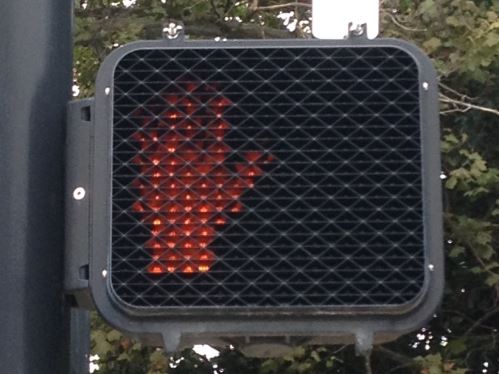 Pedestrians: when you see this sign it means you need to dart quickly into traffic, dodging oncoming vehicles as best you can.
Pedestrians: when you see this sign it means you need to dart quickly into traffic, dodging oncoming vehicles as best you can.
Drivers: when this sign is lit be sure to aim your car at pedestrians to see if they’ll get out of the way. This is all part of a fun game we call “thinning the herd”.
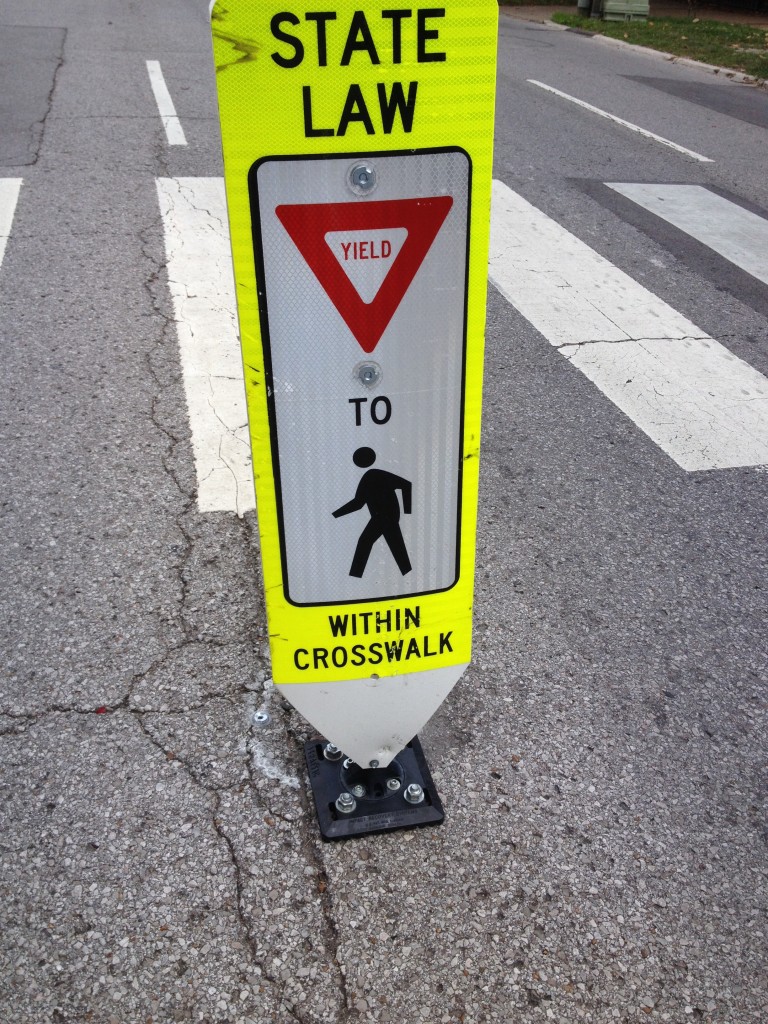 This is where pedestrians are generally known to cross, but, like a deer crossing, pedestrians might cross the street anywhere or at any time.
This is where pedestrians are generally known to cross, but, like a deer crossing, pedestrians might cross the street anywhere or at any time.
Drivers: be sure to keep some rope or bungee cords in your trunk so you can take home any pedestrians you happen to hit. They’re good eating, and that guy in the suit who was talking on his cell phone is going to look great stuffed and mounted in the corner of your den.
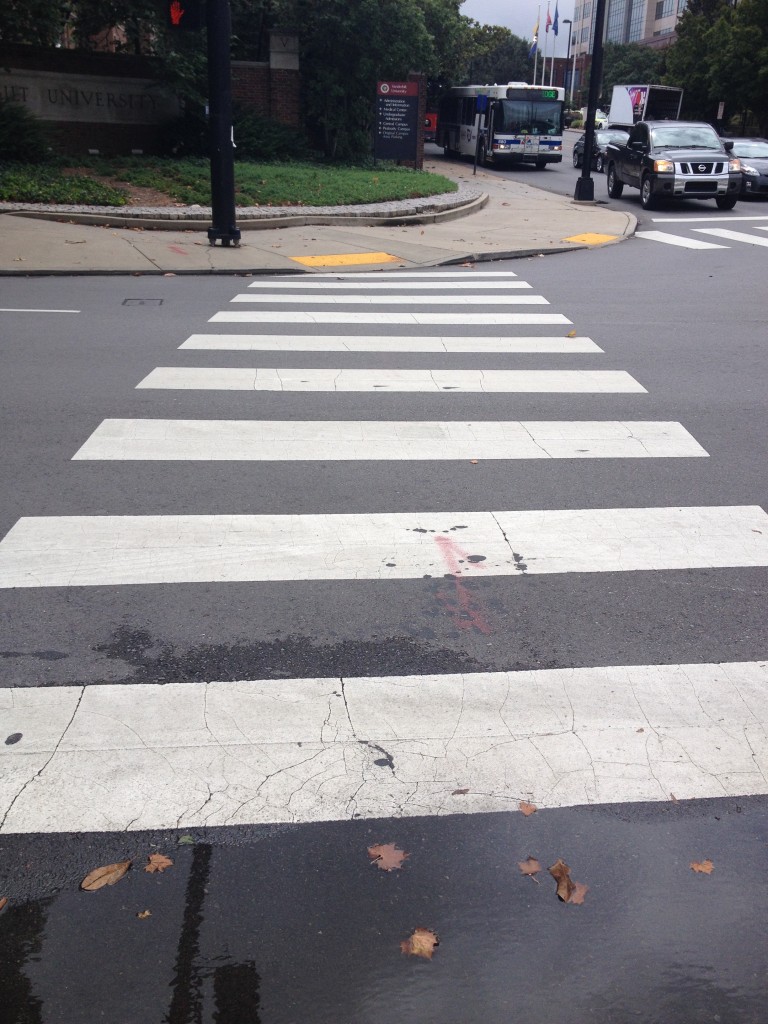 In the United States this is called a crosswalk. In Britain it’s called a zebra crossing because of the large number of zebras who emigrated from South Africa. In Canada it’s called an oh, do you mind if I cross the street here, eh? In Australia it’s called a wakka-wakka-burra-burra.
In the United States this is called a crosswalk. In Britain it’s called a zebra crossing because of the large number of zebras who emigrated from South Africa. In Canada it’s called an oh, do you mind if I cross the street here, eh? In Australia it’s called a wakka-wakka-burra-burra.
When you see this sign it means this is a place where pedestrians who are already in the process of crossing have the right of way. If pedestrians are on the sidewalk drivers need to come to a halt, give that condescending two fingered wave, and then slowly inch forward. Drivers also get bonus points for blowing their horn at pedestrians in the middle of crossing.
I hope this makes everything perfectly clear for everyone except bicyclists and motorcycle riders who insist on coming up behind me on the sidewalk.



